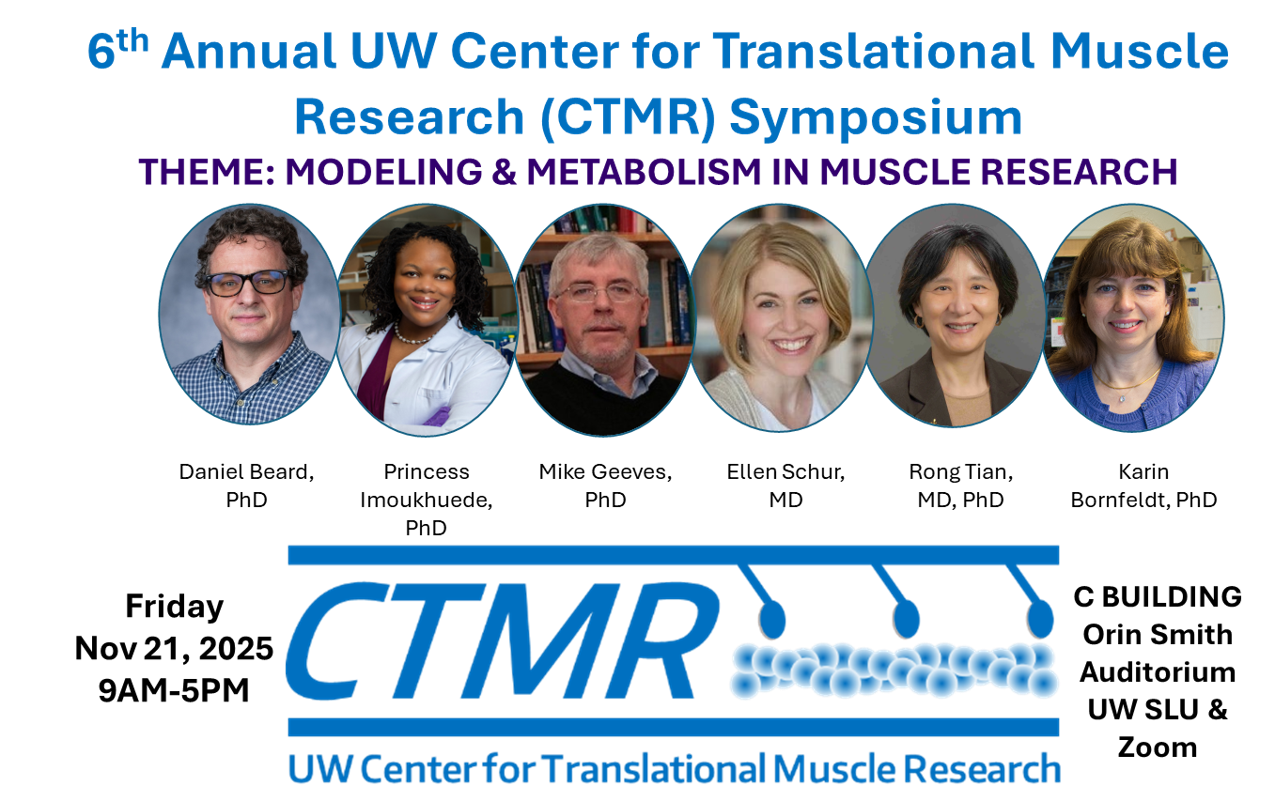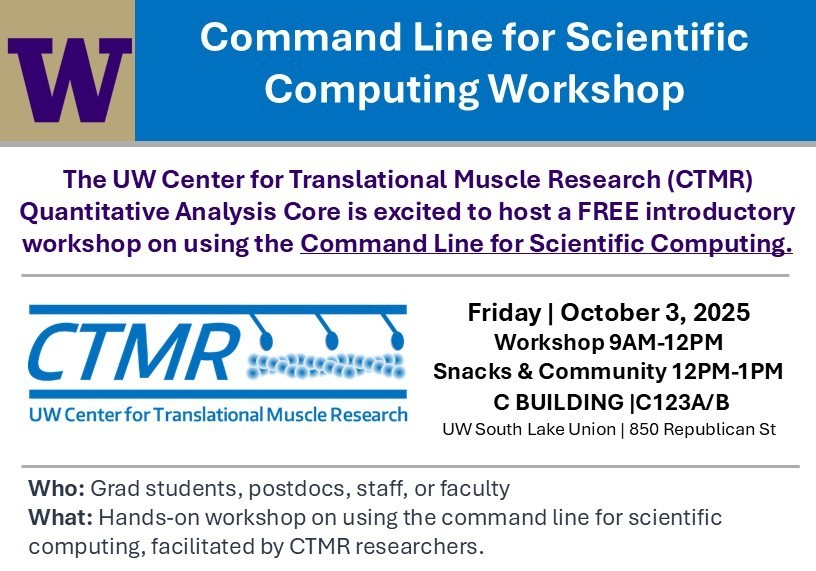Accelerating and expanding translational muscle research
The UW Center for Translational Muscle Research (CTMR) is funded by the National Institute of Arthritis and Musculoskeletal and Skin Diseases (NIAMS) to provide a unifying organization for muscle research in the heart of Seattle’s biomedical research community. The goal of the Center is to facilitate new collaborations, recruit new investigators, bring clinicians and researchers together, and provide access to state-of-the-art approaches in multi-scale biomechanics, metabolism, and quantitative-computational analysis, to accelerate translational research efforts at the UW.
Latest News:
Upcoming Events:
Sarcomere Society:
Online bi-weekly seminar series, Thursdays 8-9 am Pacific Time, covering current state-of-the-art research related to sarcomere structure and function.
To Subscribe to the Sarcomere Society email list and receive Zoom links to attend please click here.
Contact the Sarcomere Society Speaker Selection Committee – Drs Matt Childers & Joe Powers – to let us know about exciting new research you would like to present at an upcoming seminar (mcc7fb@uw.edu or powersjd@uw.edu)

Jan 29, 2026
Speaker: Kerry Kao, PhD, Postdoctoral Scholar, Powers Lab and Regnier Lab, University of Washington
Talk Title: The G256E HCM mutation prolongs relaxation via altered nucleotide handling

Feb 12, 2026
Speaker: Laura Sherer, PhD, Postdoc, Kirk Lab, Loyola University
Talk Title: TBA
Mar 12, 2026
Speaker: Anne Houdusse-Juille, PhD, Cell biology and Cancer Department – institut Curie Paris France
Talk Title: Myosin Conformational Dynamics Modulate Cardiac Output in Disease and Therapy

The International Sarcomere Society Seminar Series was founded by Drs. Mike Regnier, Mike Geeves, and Bill Lehman.

Resource Cores
Mechanics & Devices Core
The Mechanics and Devices Core provides state-of-the-art measurements of muscle biomechanics at multiple levels of integration, and develops new assays for maturation and assessment of early stage muscle.
Metabolism Core
The Metabolism Core provides tools for in-depth measures and analysis of metabolomics, energetics, cell respiration and mitochondrial function.
Quantitative Analysis Core
The Quantitative Analysis Core provides computational and statistical tools for understanding disease, suggesting new
therapeutic targets, and understanding mechanisms.






